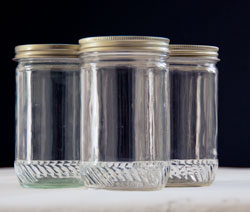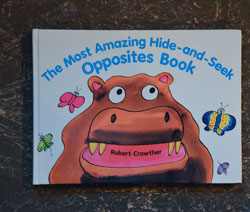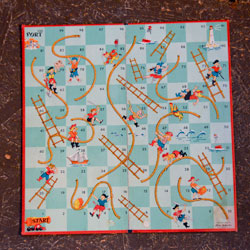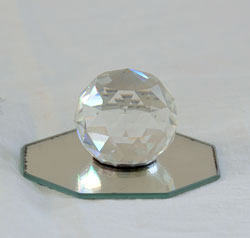Materialism: Our relationship with stuff
 ©Janet Allen
©Janet Allen Television: a consumerism propaganda machine
Acquiring the latest and greatest advertised product has never been a goal of ours. We've never been motivated to "keep up with the Jones."
We don't watch TV, so we aren't exposed to ads as much as most people are, so we aren't brainwashed into thinking we want and need all that stuff.
This is incredibly liberating since we haven't been compelled to make life choices based on acquiring more and more money to buy stuff.
 ©Janet Allen
©Janet Allen Our third (and newest) grandson
Our real enjoyment is of living things. We get so much pleasure from watching the plants and animals in our yard, by participating in community organizations, and other parts of real life—including our children and grandchildren, of course!—that we don't need to focus on stuff.
(Note: We know that many people in our country need more money just to lift themselves out of poverty; they don't have the luxury of choice. Many middle-income people, though, just don't know when to stop.)
So how did we get here?
 ©Janet Allen
©Janet Allen Some of our many, many empty peanut butter jars
How did we get to our current state of a house overflowing with stuff (though it's definitely not like those hoarders' homes you read about).
Some of this stuff are things we just ended up with, but they're too good to throw away. One example is our empty glass peanut butter jars. We do reuse a lot of them for storing our dried fruit and so on, but we can use only a finite number after all, and they just keep coming as we continue to buy peanut butter. Of course, we recycle them, but that only makes the best of a bad situation.
 ©Janet Allen
©Janet Allen One of the many of our children's childhood books I saved
Some is stuff too valuable to just give away (especially in our retirement years). But it's time-consuming to find out an item's value, and it's stressful to advertise, pack them up, and ship them out.
Much of the stuff is just stuff that we thought or our kids might use someday so we kept it. We're blessed/cursed with a house that has a large attic and cellar so we're able to store a lot of stuff. It's now clear that the kids don't want this stuff, but inertia keeps us from dealing with it. We have full, busy lives and spending days handling old stuff isn't appealing.
 ©Janet Allen
©Janet Allen A game from my own childhood - over 50 years old, but still fun even though the box and the player markers are long gone
However, we are enjoying the old games and books we saved from their childhood (and even from mine) to use with our grandchildren.
And of course some is stuff we actively sought out and acquired. Our ice cream maker comes to mind. It seemed like a good idea at the time: we'd be able to make ice cream without all the additives, and it would be a fun activity to do with grandchildren.
But now that we've discovered smoothies—and are increasingly concerned about added sugars in our lives—it became superfluous and just took up space. We got rid of it even though we had used it only a few times.
Stuff and money
 ©Janet Allen
©Janet Allen An earth-friendly lifestyle generally saves money
Our current attempt to deal with our stuff has little to do with saving money (though we're both naturally inclined toward frugality). It has more to do with stewardship of the planet's resources and with creating a richer, more tranquil home life for ourselves, without the distractions of caring for (or tripping over) all that stuff.
That being said, I would say that most of our earth-friendly practices cost less than the average lifestyle of people in our income group or even below our income. A few things, such as shade-grown coffee or organic fruit, may cost more, but we spend so much less on unnecessary things (including meat) that we still come out ahead financially.
But since this website is about living green and living good—not necessarily living thriftily—I'm not addressing the price of stuff. Everyone has either more or less money to either buy or not buy things; this simply isn't the focus of this website.
However, even if for different reasons, many websites that offer ideas to save money suggest many of the same kinds of things we do. (There are also probably resources for wealthy people who want to live it up, but I wouldn't be familiar with those!)
Stuff and patriotism
 ©Janet Allen
©Janet Allen Being a citizen isn't the same as being a consumer
It's been particularly disturbing to see that in the U. S. we all have come to be seen as "consumers" rather than as citizens, and that shopping is considered our main contribution to our civic life.
We as citizens can contribute to our country in so many ways other than by shopping. Our communities have lots of needs, and we're trying to engage in our community according to our abilities.
Protecting the land and living things in the United States and creating strong, healthy communities—not shopping—is true patriotism!
Stuff and quality of life
 ©Janet Allen
©Janet Allen One of the geegaws we acquired—what were we thinking?
One project we're working on is getting rid of all the little knick-knacks and other extraneous items around the house. When we streamline the house, it will not only be a more peaceful, orderly environment to live in, it will also be much easier to clean and keep clean.
It's still on our To Do list—we haven't gotten there yet, but we have definitely started.
Having lots of stuff may equate with a high "standard of living," but it isn't the same as a high quality of life. All of the world's wisdom literature tells us this, and until the early twentieth century, people in this country knew that!
